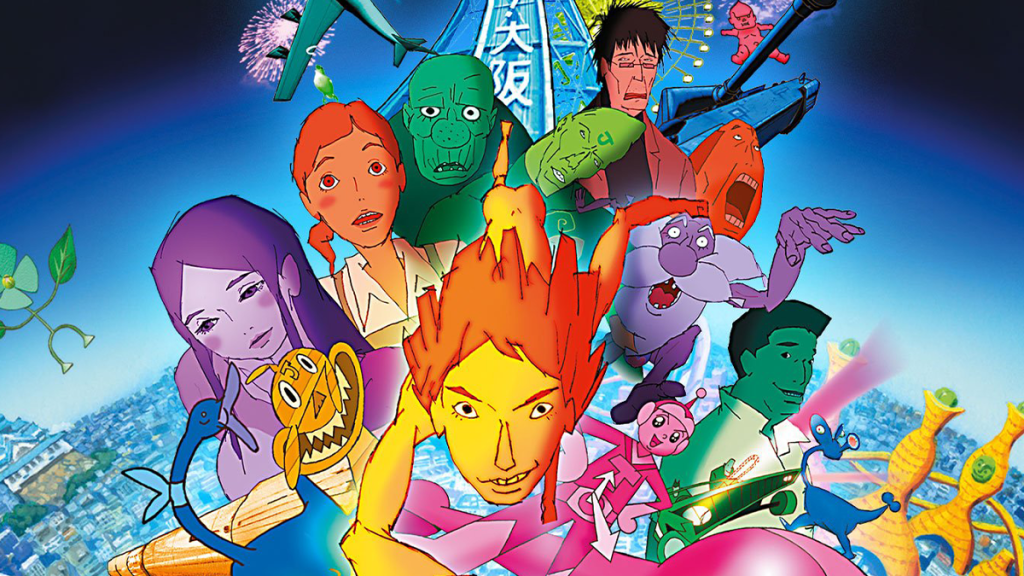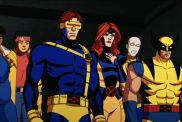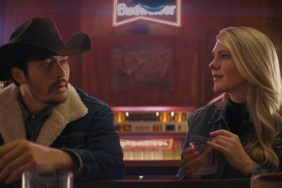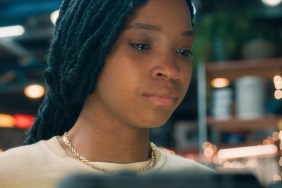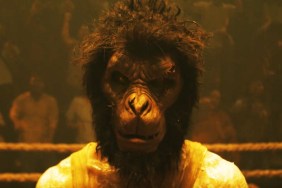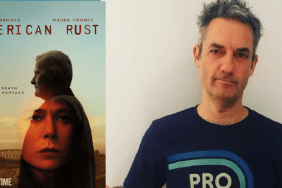ComingSoon Editor-in-Chief Tyler Treese spoke with visionary director Masaaki Yuasa about his storied career. The filmmaker spoke about how his films were received in the United States and his work on Ping Pong the Animation. The new collection of his movies, Masaaki Yuasa: Five Films, is now available as a box set from GKIDS.
“Widely regarded as one of the most imaginative and influential filmmakers working in animation today, Masaaki Yuasa has been compared to pioneers such as Tex Avery and Max Fleischer,” reads Yuasa’s description on the new set. “He is one of contemporary anime’s most prolific auteurs and has lent his humor and dynamism to genres as diverse as psychedelic thrillers, transcendent rock-operas, and sweetly subversive teen romances.”
Tyler Treese: G-KIDS is putting out such a wonderful set of five of your movies. What’s really cool is that there are a bunch of great bonus features that really dive into your creative process. I love the scene breakdowns. What does it mean for you to have such a passionate fan base that not only enjoys your art but wants to know about the thought process of what goes into the art as well?
Masaaki Yuasa: Thank you. I’m glad that you like the bonus features. I’m really grateful for the passionate fans because I think the more the audience grows, it really fuels my passion to create more products so that the newly created audience [can] enjoy the content that I create.
It’s been almost 20 years since your feature debut, Mind Game. How do you view its legacy and its lasting appeal because it’s still so beloved by fans?
Actually, I didn’t realize how many people liked Mind Game, you know? But when I came last year to the United States, and everyone I met, they constantly brought up Mind Game. They’re like, “I love Mind Game. I love Mind Game.” So then that’s when I finally realized. I didn’t know so many people liked Mind Game. That makes me really happy.
Your most recent movie, Inu-Oh, was so beautiful. I love that it’s a period piece, but the themes are just as prevalent today. Can you speak to spotlighting the marginalized and celebrating the misunderstood?
With Inu-Oh, I really wanted to make sure that we kept the authenticity of what had happened in the past, but I really thought it was really important to connect that to the current era that we live in. We still have marginalized people in the world. As a period piece, if you think about the positions of marginalized people versus people on the top, it was such a huge difference back in the day. So I really thought it was a very good way to express that. But when you think about period pieces, they usually focus on stories about the top people, whether it was the general of a military, the princess, etc.
But I really thought it was important to depict the lives of the commoners and how they live and how they felt. Because in the current era that we live in, we are all pretty much commoners and I wanted to give positivity. There’s a way to get out of bad situations, even when we live in this current time.
In North America, Lu Over the Wall wasn’t as well received as the other films that are included, which were all very much celebrated. Why do you think that film has proved more divisive than the rest?
Yeah, I don’t know why Yu Over the Wall wasn’t well received in the United States. But if I were to point out a flaw in Lu Over the Wall, it probably was a little hard to understand. So, hopefully I learned from that experience and I could use that experience to create something better that would be well received
Building off that, this collection has been such a great way to revisit your career. How do you feel as a director you’ve really evolved over time? Because we get to see 20 years of work in this amazing collection, Communication.
Yeah, I really think when I directed Mind Game, although it was well received, I really felt like there were still challenges and hurdles that came up during the process or even in the release, and it really gave me the chance to learn how I could well better communicate with the audiences. I think in the last 10 years, working with my staff and trying to let them learn and grow was really something that I focused on. So I think coming from “What can I individually learn from Mind Game,” it really came to “What can the staff earn from our projects.” I really think that’s the evolution that I went through.
You’ve worked on Crayon Shin-chan throughout your career in several different roles, and that series is still so popular even today. Would you be interested in directing a Shin-chan movie?
Yeah. Working on Crayon Shin-chan was really fun. It was a project that gave me a lot of opportunity to grow. So yeah, I think if there is an offer I would be interested. Even any of my past works that I’ve got involved in, I would like to revisit them again to see what I can incorporate from what I learned in the past decades and see what I can do with it.
One of my favorite works of yours is Ping Pong the Animation, and that had such wonderful visuals and tells such a meaningful story as well. For a lot of people, it’s their favorite anime. What’s your reaction when you hear from fans that it resonated so much with them and really impacted them?
Yeah, I really think that feeling of fans resonating with the project … you really have to give credit to the original manga artist, Taiyō Matsumoto, because he just drew a high quality manga and his stories are so deep. I did try my best to make it more easier to understand his themes and what he wanted to convey in the animated version. “What does it mean to be a genius?” That’s something that I often think about, because I’m also a creative person as a director. So yeah, it was really interesting to work on that.
